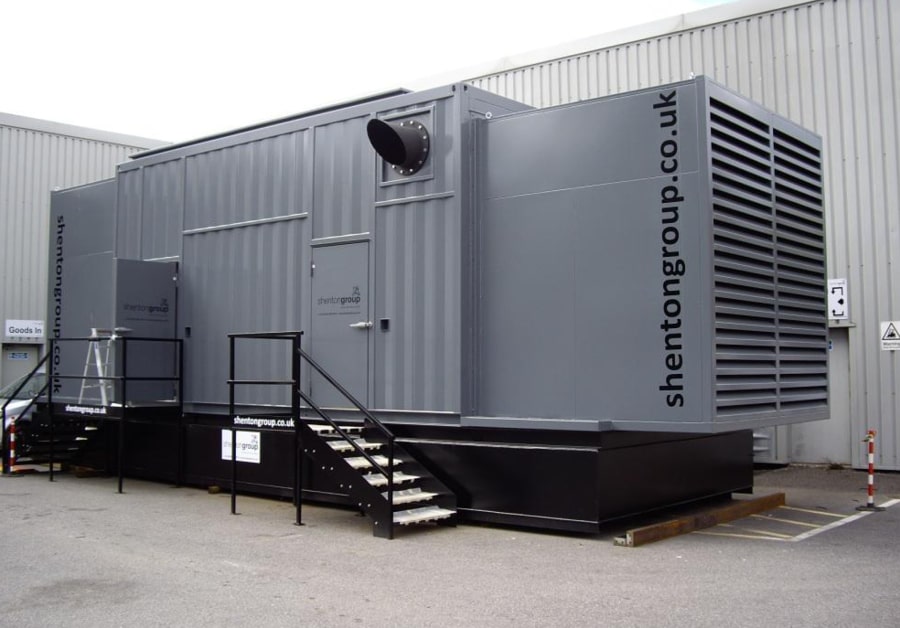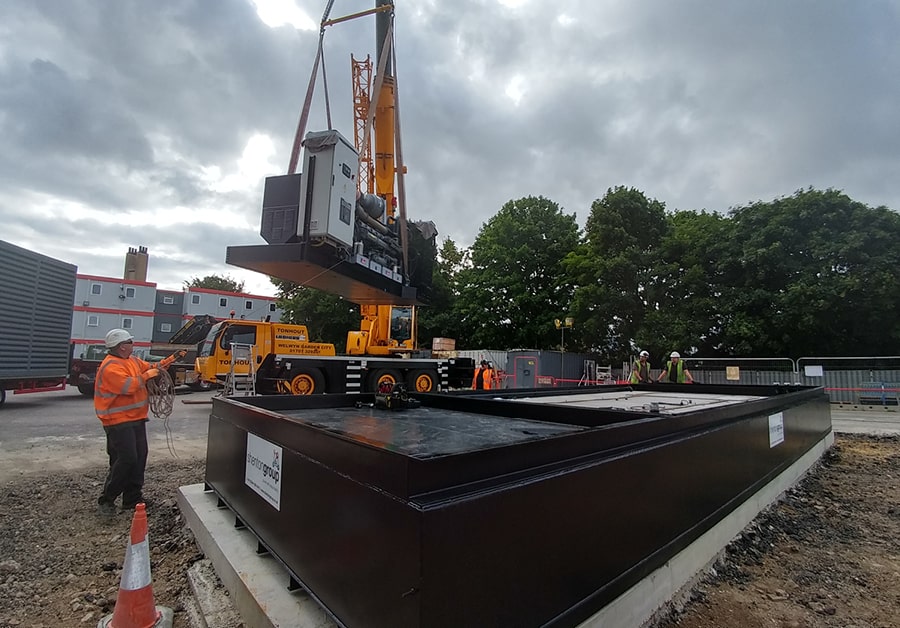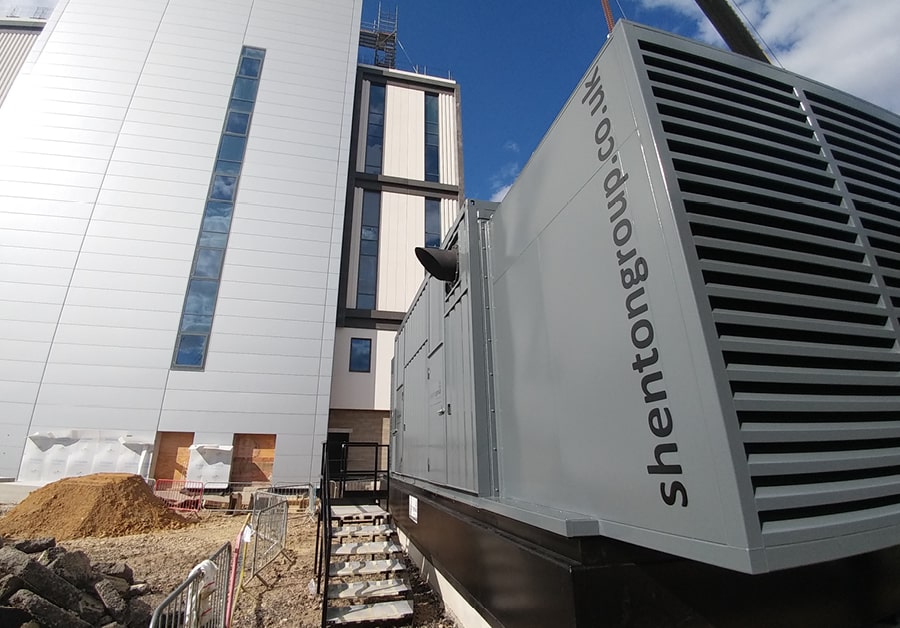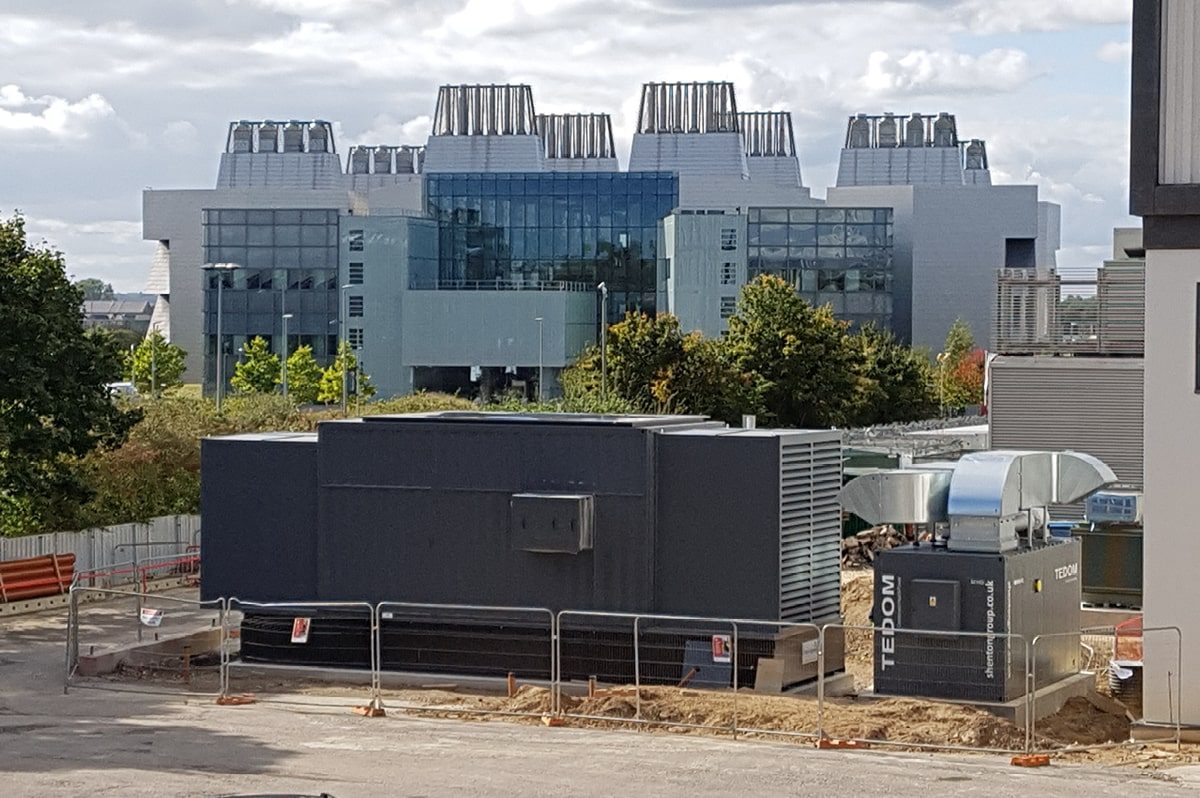BACKGROUND
Project Capella was a £79m research laboratory development for the University of Cambridge. The University wanted a fast-track build, and as a result, some very fast-track methods of construction were required throughout the project. However, as a heavily serviced research laboratory with considerably complex and intricate M&E components, design coordination and collaboration with other trades was key to ensuring the program was met and quality not compromised. To enable this fast-paced implementation, early engagement with all the necessary contractors took place at the initial design phase. This meant that the supply chain was happy to be involved with the upfront design and incur costs knowing that they would be successful in securing the works once the project moved ahead. This was no different on the generator and CHP package; SES approached Shenton Group to assist.
PROJECT OVERVIEW
Once the necessary desktop and feasibility studies had been carried out to determine the site loads and profiles, Shenton Group began detailed design. The solution was to be a 1917kVA generator and a 140kWe CHP unit installed in bespoke 65 dB(A) @ 1-meter containers to meet the required noise specification. Utilising a Perkins engine for the generator and MAN engine for the CHP, the Shenton Group design and projects teams worked closely together to ensure the generator and CP integrated seamlessly from a controls and site layout point of view.
The CHP was supplied along with all the required heat and gas metres, G59 protection devices and remote monitoring modules and underwent a stringent Factory Acceptance Test prior to dispatch.
The generator solution includes a large 26,500-litre slab fuel tank that also formed the acoustic base for the generator enclosure. By offering the fuel tank as a slab tank and not a stand-alone fuel tank meant that the footprint on-site could be significantly reduced.
Once the generator and CHP had been delivered to the site, re-assembled and installed, our projects team liaised closely with the consultant and M&E contractors to carry out the final testing. Testing included Integration System Testing, detailed commissioning and finally, client training and familiarisation.






OUTCOME
The complete installation is now supported by a 24/7 maintenance and monitoring package that ensures faults and alarms can be identified and rectified early. As with any critical installation, Shenton Group can guarantee a 4-hour engineer response time when necessary.

